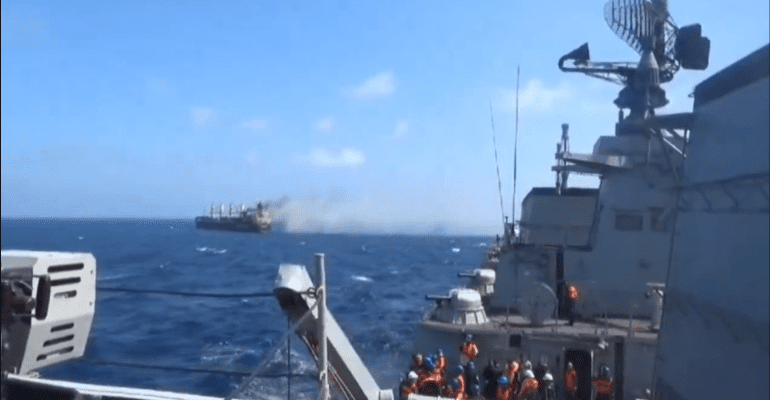Unconfirmed reports indicate that the 4,944 teu Pinocchio was targeted by a missile, but US Centcom stated that the missile detonated near the vessel and did not cause any damage. The UKMTO confirmed Centcom’s assessment that a Singaporean-owned, Liberian-flagged ship was fired upon, but the missiles did not hit the vessel or cause any injuries. The attack occurred 70nm west of Saleef port, Yemen in the Red Sea, according to VesselsValue, which also lists the vessel owners as Oaktree Capital Management based in California.
Centcom reported intercepting an unmanned underwater vessel and 18 anti-ship missiles fired by the Houthi Movement, forcing commercial ships to divert around the African Cape. This has added significant distance and costs to voyages from Asia to Europe, with container ship transits via the Red Sea falling by 91% and vessels diverting via the Cape. The Hamburg-based platform OceanScore estimates that diverted vessels have tripled fuel consumption and increased sailing speed, leading to a significant increase in EU Allowances costs.
OceanScore’s co-MD Albrecht Grell highlighted the impact of changes in sailing speeds, vessel sizes, and energy efficiency on costs related to the EU ETS. He warned that if the carbon price returns to previous levels, costs could nearly double, and with the complete phase-in of the EU ETS, costs could increase even further. Grell emphasized the need for shipping companies to prepare for higher emissions liabilities due to ongoing Houthi attacks in the Red Sea, which are causing disruptions to ocean freight operations.







